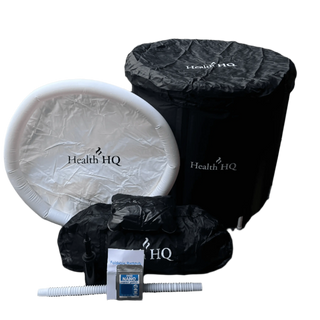Everything You Need to Know About a 72-Hour Water Fast: Benefits, Tips, and What to Expect
Fasting has been practiced for centuries in various cultures for both spiritual and health purposes. Today, water fasting—especially extended fasts like the 72-hour water fast—has gained attention for its potential health benefits, including improved cellular repair, fat loss, and mental clarity. However, a 72-hour water fast is not something to take lightly. It requires preparation, mental discipline, and a good understanding of what happens to your body during the fast.
In this blog post, we’ll cover everything you need to know before embarking on a 72-hour water fast, including the potential benefits, risks, and tips to make the experience smoother.
What Is a 72-Hour Water Fast?
A 72-hour water fast involves consuming only water for 72 consecutive hours—no food, no calorie-containing drinks, and no supplements (unless necessary). Unlike intermittent fasting, which typically limits eating to certain hours of the day, this extended fast spans three full days without any caloric intake.
During this time, your body undergoes significant metabolic changes, shifting from relying on glucose for energy to burning fat and generating ketones.
The Stages of a 72-Hour Water Fast
Understanding what happens to your body during different phases of the fast can help you manage expectations and stay motivated.
-
0-12 Hours: Glycogen Depletion
During the first 12 hours, your body uses glycogen (stored glucose) as its primary energy source. As glycogen stores are depleted, your blood sugar levels may fluctuate, leading to initial hunger pangs and cravings. -
12-24 Hours: Transition to Fat Burning
Once glycogen stores are low, the body begins breaking down fat for energy. At this stage, insulin levels drop, and your body enters a mild state of ketosis. You may start to feel more focused but might also experience mild fatigue or irritability. -
24-48 Hours: Increased Ketosis and Autophagy
By the second day, your body has shifted primarily to burning fat and producing ketones. This is when autophagy—a process where the body removes damaged cells and regenerates new ones—kicks into high gear. You might feel more alert, but energy levels can fluctuate. -
48-72 Hours: Maximum Ketosis and Cellular Repair
The final stage of the fast is when ketosis peaks, and autophagy is at its highest. Many people report mental clarity, reduced inflammation, and a sense of calm during this period. However, you may also feel tired or lightheaded as your body adjusts to low energy intake.
Potential Benefits of a 72-Hour Water Fast
1. Enhanced Autophagy
Autophagy is a natural process in which the body removes damaged cells and recycles components to create new, healthier cells. Extended fasting is one of the most effective ways to trigger autophagy, which can improve cellular health, slow aging, and reduce the risk of chronic diseases.
2. Increased Ketone Production
Fasting pushes the body into ketosis, where it burns fat for fuel and produces ketones. Ketones not only provide energy but also have neuroprotective properties, potentially improving brain function and reducing inflammation.
3. Improved Insulin Sensitivity
Extended fasting helps lower insulin levels and improve insulin sensitivity. This can be beneficial for those with insulin resistance, prediabetes, or type 2 diabetes (although those with diabetes should consult a doctor before fasting).
4. Weight Loss and Fat Burning
Since the body relies on fat for energy during a fast, a 72-hour water fast can lead to significant fat loss. However, it’s important to note that some of the initial weight loss will be water weight due to glycogen depletion.
5. Immune System Reset
Research suggests that extended fasting can promote immune system regeneration. By removing old or damaged immune cells and stimulating the production of new ones, fasting may help improve overall immune function.
6. Mental Clarity and Focus
Many people report heightened mental clarity and focus during fasting. This is likely due to a combination of ketosis, reduced inflammation, and the absence of blood sugar spikes and crashes.
Potential Risks and Side Effects
While a 72-hour water fast has many benefits, it’s not without risks. Common side effects include:
- Hunger: Intense hunger is expected, especially in the first 24-36 hours.
- Fatigue: You may feel tired or sluggish, particularly if you’re not used to fasting.
- Dizziness or Lightheadedness: As your body adapts to lower energy intake, you may feel dizzy, especially when standing up quickly.
- Headaches: These are common in the early stages of fasting and may be due to caffeine withdrawal or dehydration.
- Electrolyte Imbalance: Without proper hydration and electrolyte management, you may experience muscle cramps, weakness, or irregular heartbeat.
Who Should Avoid a 72-Hour Water Fast?
While fasting can be beneficial for many people, it’s not suitable for everyone. You should avoid a 72-hour water fast if:
- You’re pregnant or breastfeeding.
- You have a history of eating disorders.
- You’re underweight or malnourished.
- You’re on medications that require food or affect blood sugar.
- You have a chronic illness without medical supervision.
Tips for a Successful 72-Hour Water Fast
-
Prepare Your Body
A few days before your fast, reduce your intake of carbs, processed foods, and caffeine. This helps ease the transition into ketosis and minimizes withdrawal symptoms. -
Stay Hydrated
Drink plenty of water throughout the fast to prevent dehydration. You can also add a pinch of sea salt to your water to help maintain electrolyte balance. -
Keep Busy
Staying occupied can help distract you from hunger. Engage in light activities such as reading, walking, or meditating. -
Rest When Needed
Listen to your body and rest if you feel fatigued. Avoid intense physical activity during the fast. -
Break the Fast Properly
After 72 hours, reintroduce food gradually. Start with light, easily digestible foods like bone broth, steamed vegetables, or a small portion of protein. Avoid heavy, processed, or sugary meals immediately after breaking the fast.
It is also a good idea to consume electrolytes during your fast, as well as one serving of bone broth per day if needed.
Conclusion: Is a 72-Hour Water Fast Right for You?
A 72-hour water fast offers numerous health benefits, from enhanced autophagy and fat loss to improved insulin sensitivity and mental clarity. However, it’s important to approach it with proper preparation, caution, and an understanding of your body’s limits. If you have any medical conditions or concerns, always consult a healthcare professional before attempting an extended fast.
Done correctly, a 72-hour water fast can be a powerful tool for resetting your body, improving overall health, and gaining a deeper understanding of your relationship with food.
Want more health and wellness tips? Check out HealthHQ’s blog for expert advice and product recommendations designed to help you live your healthiest life.








